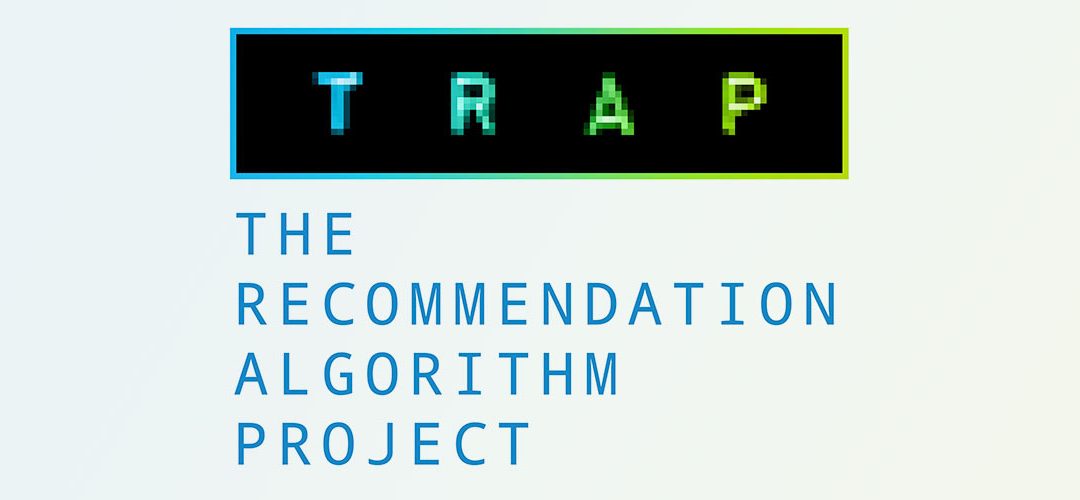Featuring digital human rights, digital policies, privacy and the open society from a humanist point of view.

Deus ex machina – How pathetic or dangerous is religious AI?
AI can do a lot — but can it also convincingly play God? Why not, the initiators of religious chatbots asked themselves. Today, self-learning neural networks (i.e., “artificial intelligence”) can relatively easily pretend to be Beethoven, George R.R. Martin, President...

Interviewing the ChatGPT-AI about the origin of it’s values – and why Qwertzuiops are deep purple
Chat GPT is the latest shockwave of AI awareness that hit the public in November 2022. Since that, the system has learned that 1 kg of feathers is not lighter than 1 kg of lead. But how does it handle value issues?

TRAP – Are Recommendation Algorithms crucial factors for the survival of our democracies?
Recommendation algorithms and moderation rules in social media polarize our society. We all struggle with the impacts. So what can we do?

Opinion Paternalism vs. Disinformation – How our Freedom of Expression evolves
A memorandum with seven examples and seven proposals. The last few months have shown that our democracies can face serious crises of confidence as a result of media-driven polarization. If we want to further protect freedom of expression and fundamental rights, we...

Expert Interview on Childporn and Chatcontrol – “How can we make it look like we’re doing something?”
Alexander Hanff, an abuse survivor and privacy advocat, explains why the EU’s planned ePrivacy Derogation won’t work, but will do a lot of damage.

Our message against chatcontrol in the EU
The ePrivacy Derogation planned in the EU is an unprecedented attack on our electronic privacy of correspondence. And it is completely unsuitable for the supposed good purpose – combating child abuse. Sometimes you have the impression of being a little crazy. You read...

Chatcontrol: How the EU Commission is willing to sacrifice the secrecy of correspondence for illusive child protection
According to a hastily passed EU ePrivacy Derogation, our entire electronic communication will be searched for indications of paedophilia in the future. The EU Commission believes it has every right to carry out such an Orwellian invasion of privacy – because it is...

Twelve answers to “The Social Dilemma”
Some movies change the way an entire generation looks at a subject. “An Inconvenient Truth”, “Holocaust“ or maybe “We Feed the World.” “The Social Dilemma” stands in this line for me — although maybe the documentary didn’t quite achieve the impact it deserved.

You believe in the great conspiracy? Then you should read this one!
“Please do not hang up now!” said a haunting male voice on the other end of the line. Everything was quiet for a moment. Calm but resolutely he continued: “I have something important to tell you, it will only take a few minutes.” This dramatic introduction leads us...

Corona apps – is trust good?
New apps are being developed in an attempt to get the Covid-19 pandemic under control and restore a halfway normal life. Sewn with a hot needle, these apps could become a disaster. The good news is: Trustworthy solutions are in sight and might serve as a blueprint in...

That airplane feeling – why we end up abandoning ourselves to technology
Progress nowadays has taken the turbo. A thorough technology assessment is rarely possible — and time is rarely taken for it. With the example of self-steering cars, we can observe how we are fascinated or disturbed by technology, but in the end are overwhelmed. 2020....

Hate speech and social media – what is the hen, what is the egg?
Is it a brown swamp that has always been there – or is it the social media that made this brew ferment in the first place? Are we dealing with a new form of democracy, with results that we simply don’t like?

Reinventing the wheel: How self-sovereign identities could help to fix the internet
The German Minister of the Interior, Mr. Zimmermann, just couldn’t believe it. There were really "adult judges" who adopted the "marginal concerns" of a radical minority against the census. And worse: only months later, constitutional judges formulated in a landmark...

Crime and punishment – when will we start sentencing data offenders?
Data offences by corporations, governments or secret services are hardly being sanctioned at all under criminal law. This creates a legal vacuum - and a lot of power. Data is valuable. A friend of mine, David, recently got his laptop stolen from inside a car....

How shall we deal with “terrorist content” – and what exactly is that anyway?
Reading time: ~ 8 min. For the beginning an – unfortunately not too – fictitious scenery: A wedding party sets off with a motorcade to a celebration. Bride and groom sit in a mighty SUV, they wave, four more cars follow. The air is clear, the cars leave the place in...

Three great lectures on video
There are plenty of lecture videos available on the digital human rights subject. Yet, some of them clearly stand out. Here are three that I found particularly interesting for my understanding of the matters. For me this is alltogether 3.5 hours of mindblowing...

In the realm of the rowdy – an excursion to the Philippines
Reading time: ~8 min. The knife is missing. My chicken with rice and vegetables I eat only with fork and spoon, or just take the hand to help. And I notice that you can cut surprisingly well with a spoon. Knives at the table are supposedly frowned upon in the...

What we can learn today from the history of the worker’s radio movement
“Broadcasting would be the greatest conceivable communication apparatus in public life, if it could not only transmit, but also receive, relate to the listener.” Bertolt Brecht (shortened), 1932 Before the Internet existed - this must be remembered occasionally -...

Why the planned EU copyright directive would harm us in the long run
Open letter to the EU parliamentarians who have so far spoken out in favour of a compromise on a copyright directive. (For a list see How Your MEPs Voted on the Article 13 #CensorshipMachine). Reading time: 2 min. Dear ladies and gentlemen, in the midst of...

Why sexting is perfectly normal behaviour – and should be protected
49 to 88 Percent. Thats the figure. It’s the amount of average people that exchange intimate, sexually explicit content online. Sending hot images and sexting via messengers, chats, dating platforms. So much for “I have nothing to hide“. Does that surprise us? Not...

Our data belong to us – don’t they? About data ownership
The question of who owns the data treasure we have created, who is allowed to process it and why that is so, has not been answered to date. Some people think that it’s even better that way: That data ownership was Pandora’s box, the beginning of the end. Here are a...

Already the algorithm begins to shape me – 14 days on Twitter in a self experiment
Just like shoes with heels will change ones gait and the whole posture, social networks shape our thinking. I had the rare opportunity to do something quite trivial for the first time and watch exactly what it does to me: Twittering. A subjective report. Like a bird...

The thing about surveillance cameras
Surveillance cameras are supposed to bring us more security. This promise is only partly being fulfilled. Also, however, there is a thin line that turns the camera into a perpetrator, a totalitarian instrument. This is about why we should prevent and punish the...

Do we need a declaration of digital human rights?
Dealing with this subject, I found a recent panel discussion from the Web Summit 2018, that covers exactly this issue. It serves very well to point out the positions and set a few common misunderstandings straight (though you don't need to see it to read this...

Why we are better off with digital human rights
To start with, a story and a quiz. We all know this kind of story: For several years, before every taxi order I was asked by a friendly voice to use a taxi app. When even a taxi driver gave me a recommendation card, I decided to give it a try. The result was stunning....

Document: Defending human rights in the age of digitalization
The following document was published as part of our position paper of the Giordano-Bruno-Foundation (”How should IT work?“), which was prepared at a workshop in Berlin in May 2018 and revisted by renowned lawyers, ethicists and IT specialists. The formulation...
Stay tuned

This blog is supported by
.
Recommended international links
German speaking links
- Algorithmwatch
- Chaos Computer Club
- digitalcharta.eu
- digitalcourage e.V.
- Digitale Gesellschaft
- Gesellschaft für Freiheitsrechte
- Humanistischer Pressedienst
- Integrata Stiftung
- iRights.Lab
- Netzpolitik.org
- noyb
- Reporter ohne Grenzen
- Stiftung neue Verantwortung

